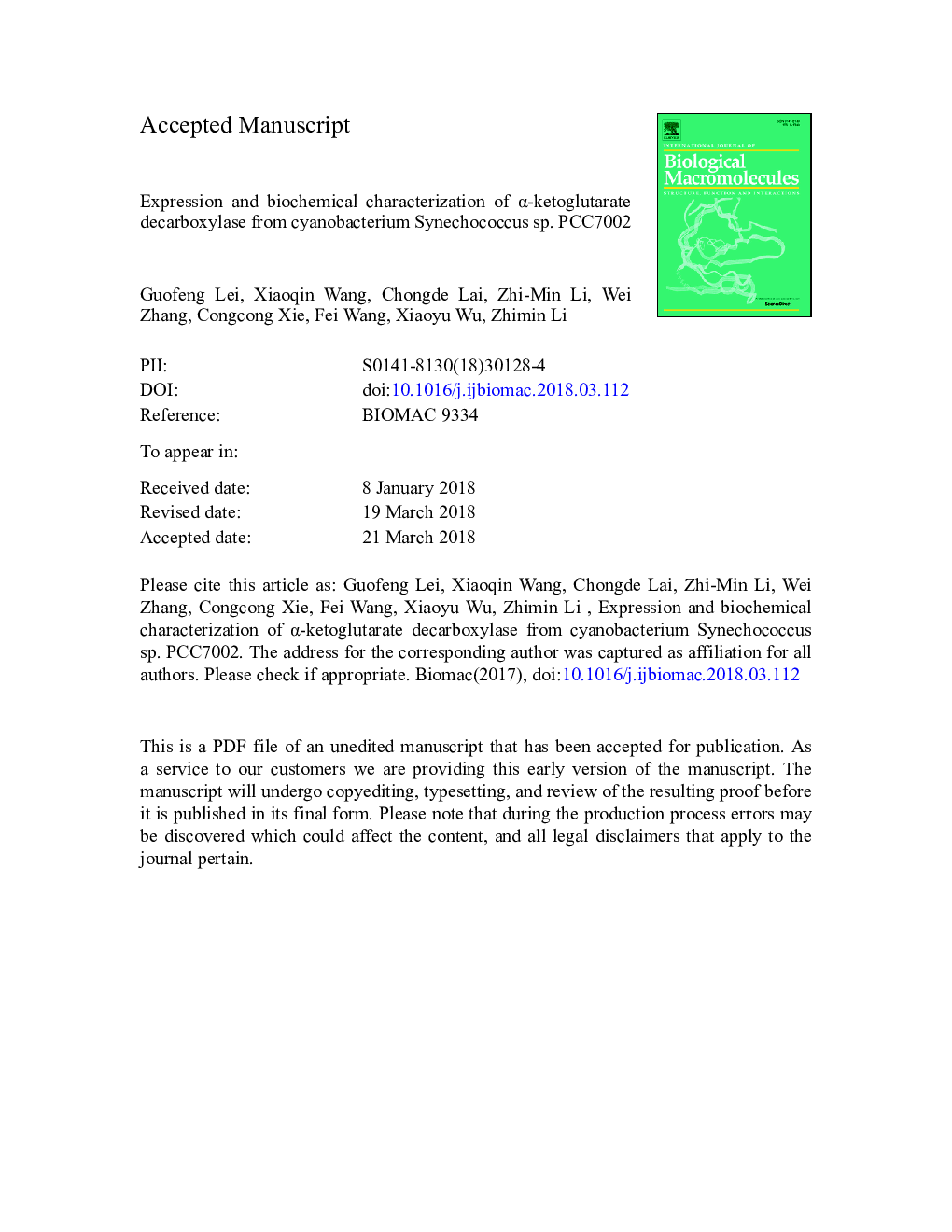| Article ID | Journal | Published Year | Pages | File Type |
|---|---|---|---|---|
| 8327207 | International Journal of Biological Macromolecules | 2018 | 24 Pages |
Abstract
α-Ketoglutarate decarboxylase (α-KGD), one member of α-keto acid decarboxylases, catalyzing non-oxidative decarboxylation of α-ketoglutarate to form succinic semialdehyde, was proposed to play critical role in completing tricarboxylic acid (TCA) cycle of cyanobacteria. Although the catalytic function of α-KGD from Synechococcus sp. PCC7002 was demonstrated previously, there was no detailed biochemical characterization of α-KGD from Synechococcus sp. PCC7002 yet. In this study, the gene encoding α-KGD from Synechococcus sp. PCC7002 was amplified and soluble expression of recombinant α-KGD was achieved by coexpressing with pTf16 chaperone plasmid in E. coli BL21 (DE3). Kinetic analysis showed that the activity of α-KGD was dependent on cofactors of thiamine pyrophosphate and divalent cation. Meanwhile this α-KGD was specific for α-ketoglutarate with respect to the decarboxylation activity despite of the pretty low activity of acetolactate synthase. The catalytic efficiency of α-KGD (the values of kcat and kcat/Km for α-ketoglutarate were 1.2 sâ1 and 6.3 Ã 103 Mâ1 sâ1, respectively) might provide evidence for its physiological role in TCA cycle of Synechococcus sp. PCC7002.
Keywords
Related Topics
Life Sciences
Biochemistry, Genetics and Molecular Biology
Biochemistry
Authors
Guofeng Lei, Xiaoqin Wang, Chongde Lai, Zhi-Min Li, Wei Zhang, Congcong Xie, Fei Wang, Xiaoyu Wu, Zhimin Li,
